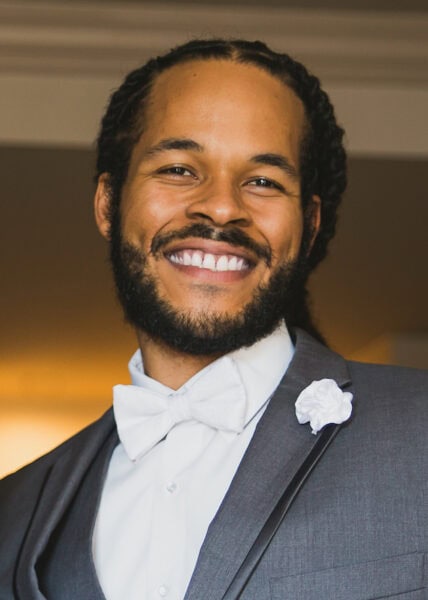Antony Keane-Dawes is a PhD candidate at the University of South Carolina. He lives in Columbia, South Carolina, and has been a member since 2012.
Antony Keane-Dawes is a PhD candidate at the University of South Carolina. He lives in Columbia, South Carolina, and has been a member since 2012.
Alma maters: BA, St. John’s University, 2010; MA, Florida International University, 2013; PhD in progress, University of South Carolina
Fields of interest: Latin America, Caribbean, African diaspora, Atlantic history
Describe your career path. What led you to where you are today? I have always been interested in history but it was not until I traveled outside the United States that I began to appreciate the way other people look at history. After taking a year off after receiving my bachelor’s, I attended Florida International University where I broadened my horizons both intellectually and culturally. I landed at the University of South Carolina where I have been for almost four years working within a diverse community of faculty and graduate students. I am fortunate to be in an environment with support and guidance to help me to become a future historian and educator in the field.
What do you like the most about where you live and work? I like the college town atmosphere of living in Columbia. Spending most of my life living in big cities it was a nice change of pace to live in a place more close knit. I have enjoyed interacting with the students both as a TA for different courses and as an instructor of record. There is so much to learn.
What projects are you currently working on? I am currently working on my dissertation titled “Reimagined Community: Imperial Occupation and Liberation in Santo Domingo, 1818–44” that explores ideas of nationalism, nation-building, and race in the Dominican Republic. As the only former colony not to gain its formal independence from a European power, the Dominican Republic occupies a unique historical place in the Caribbean. I trace the development of Dominican national identity after the unification of Haiti in 1822 to its independence in 1844, and how race and blackness were being defined as Dominican nationals sought to justify their separation from their Haitian neighbors.
Have your interests evolved since graduation? If so, how? I have also had an interest in nation-building particularly in Latin America during the 19th century. Where I feel like my interests have evolved is in analyzing the role of race in forming a national identity.
What’s the most fascinating thing you’ve ever found at the archives or while doing research? I found a sermon by a priest who equated religious freedom with the worship of Roman Catholicism and the suggestion that freedom of religion for different sects of Christianity was negative.
Is there an article, book, movie, blog etc. that you could recommend to fellow AHA members? I would recommend for fellow AHA members to find blogs pertaining to their research interests. The potential to exchange ideas and learn new things is there.
What do you value most about the history discipline? I value that every work, no matter how big or small, has a contribution to make to a larger literature. It makes your research part of a larger piece in understanding a particular part of the past. It will be something that other people can read and use later down the road.
Why is membership in the AHA important to you? My AHA membership is important to me because it gives me a connection to the larger world of historians, keeps me updated on the latest trends in the field, and is a way to keep in touch with other colleagues at the annual meetings.
AHA members are involved in all fields of history, with wide-ranging specializations, interests, and areas of employment. To recognize our talented and eclectic membership, AHA Today features a regular AHA Member Spotlight series.
This post first appeared on AHA Today.
This work is licensed under a Creative Commons Attribution-NonCommercial-NoDerivatives 4.0 International License. Attribution must provide author name, article title, Perspectives on History, date of publication, and a link to this page. This license applies only to the article, not to text or images used here by permission.

